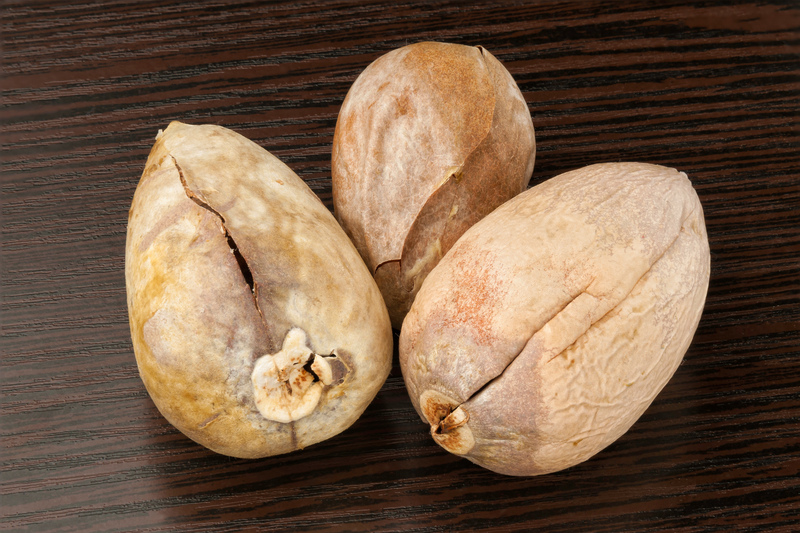From Seed to Sprout: 9 Beginner Tips to Nurture Your Garden
Posted on 06/09/2025
From Seed to Sprout: 9 Beginner Tips to Nurture Your Garden
Embarking on a gardening journey is both an art and a science. Whether your dream is a vegetable paradise or a vibrant flower bed, growing a beautiful, healthy garden begins with understanding the essentials. This comprehensive guide unveils 9 beginner gardening tips that will turn your gardening aspirations into a rewarding experience--from seed to thriving sprout.
Why Nurturing Your Garden Matters
A well-tended garden not only delights the senses but also offers health and environmental benefits. From seed to sprout, nurturing your plants can improve air quality, reduce stress, and even put fresh, organic food on your table. For beginners, mastering simple gardening techniques ensures your seeds transform into flourishing greens or blossoms.

9 Essential Tips for New Gardeners
If you're eager to start your garden or struggling to nurture seedlings, these practical suggestions will set you on the path to success.
1. Select The Right Location
- Sunlight is King: Most plants need at least 6-8 hours of direct sunlight. Observe your outdoor space throughout the day to identify areas with the best light.
- Accessibility: Place your garden where you'll see and tend it often. Out of sight often means out of mind.
- Tip: A spot with morning sun and afternoon shade provides gentle warmth and protection from harsh afternoon rays.
2. Start Small and Simple
- Don't Overwhelm Yourself: It's tempting to plant everything at once. Begin with a few easy-to-grow varieties such as lettuce, radishes, or marigolds.
- Choose compact beds or containers--raised garden beds and pots let you control soil and drainage.
- Enjoy small successes and gradually expand your garden care skills!
3. Invest in Healthy Soil
- Soil Quality: Rich, well-draining soil is a foundation for thriving plants. Test your soil or use compost-enriched potting mix for containers.
- Add organic matter such as compost or aged manure to improve fertility, texture, and moisture retention.
- Tip: Mulch newly seeded areas lightly to retain moisture and discourage weeds.
4. Choose the Right Seeds or Seedlings
- Check Plant Hardiness: Purchase seeds or seedlings suited to your growing zone and season for the best chances of success.
- For beginners, look for easy-to-germinate seeds such as beans, sunflowers, or zinnias.
- Research each plant's specific needs for optimum results from seed planting to sprouting.
5. Water Wisely
- Consistency is Key: Seedlings and young sprouts need steady moisture but dislike being waterlogged.
- Water early in the morning to prevent fungal diseases and reduce evaporation.
- Use a gentle watering can or drip system to avoid displacing seeds or damaging tender roots.
6. Practice Patience and Observation
- Plants Grow at Their Own Pace: Germination varies by species--some seeds sprout in days, others can take weeks.
- Watch for signs of pests, disease, or stress so you can act quickly to resolve issues.
- Keep a gardening journal--record weather conditions, growth stages, and what works for your garden.
7. Control Weeds Early
- Weeds Compete for Resources: Remove weeds before they mature, especially near vulnerable seedlings.
- Mulching not only conserves soil moisture but also hinders weed growth.
- Regular, light weeding saves time and effort in the long run.
8. Feed Gently
- Avoid Over-Fertilizing: Too much fertilizer can burn tender plants, especially sprouts.
- Use organic plant foods or diluted liquid fertilizers suitable for young plants.
- Follow label instructions carefully for healthy, gradual development from seed to sprout and beyond.
9. Learn, Experiment, and Connect
- Continuous Growth: Every garden is unique. Experiment with different techniques and plant varieties to discover what works best for you.
- Join local gardening clubs, browse reputable websites, or follow online forums to share advice and get new ideas.
- Celebrate every small success--it's part of the nurturing process!
Bringing Your Seeds to Life: Step-by-Step Gardening Guide
The journey from seed to sprout is magical and deeply satisfying. Here's a concise, actionable process:
- Prepare the Soil: Loosen the earth and mix in compost for nutrients.
- Sow Seeds or Plant Seedlings: Follow packet instructions for correct depth and spacing.
- Water Gently: Moisten the soil thoroughly without washing away seeds.
- Protect Young Growth: Use mulch, row covers, or netting to shield from pests and harsh weather.
- Monitor Daily: Check soil moisture, look for germination, and note any concerns.
Each stage, from planting to sprouting and nurturing full-grown plants, helps develop your skills and appreciation for the cycles of nature.
Common Seed-Starting Mistakes to Avoid
- Planting too deep--many seeds need light to germinate. Check the packet or trusted guides.
- Over or under-watering--maintain even moisture but don't let seeds sit in soggy soil.
- Poor light conditions--grow lights help if you lack sunny windows.
- Crowding seedlings--thin them to allow space for root and leaf development.
Best Tools for Beginner Gardeners
A few simple, high-quality tools make gardening easier and more enjoyable. We recommend:
- Hand trowel--for digging small holes and transplanting.
- Pruning shears--to trim and shape plants.
- Watering can with fine rose--gentle on fragile sprouts.
- Gardening gloves--protect hands from abrasions and thorns.
- Labels or markers--track what you've planted and their dates.
Why New Gardeners Should Celebrate Progress
Nurturing your garden from seed to sprout is a journey filled with learning, patience, and joy. Celebrate each new shoot or harvested vegetable. Your persistence not only pays off in vibrant plants but also builds confidence for more ambitious gardening projects.

Frequently Asked Questions (FAQs) about Growing a Garden from Seed
How long does it take for seeds to sprout?
Sprouting time varies: radish and lettuce seeds can germinate in just 3-7 days, while peppers and tomatoes may take 10-21 days. Always check the packet for details.
Can I use seeds from store-bought produce?
Sometimes! However, seeds from hybrid fruits or vegetables may not produce true-to-type plants. For reliable results, purchase seeds from reputable sources.
What's the easiest plant to grow for beginners?
Herbs like basil, leafy greens (lettuce, spinach), and flowers such as marigolds are forgiving and quick to reward your efforts.
How often should I water my new garden?
Usually, once a day for new seeds or seedlings--just enough to keep soil evenly moist. Adjust frequency for rainfall and local weather conditions.
Conclusion: Planting Seeds--Planting Hope
From seed to sprout, your nurturing hand makes all the difference. Start with a few easy plants, enrich your soil, practice patience, and enjoy watching life unfold in your garden. With these beginner gardening tips, you'll create not just a beautiful landscape but also a lasting connection with nature--one seed, one sprout at a time.
Ready to dig in? Gather your seeds, garden tools, and enthusiasm. Your flourishing oasis awaits!
Latest Posts
A Green Thumb's Journey to a Lush Herb Garden
Transform Your Space with 5 Low Cost, Easy-Care Garden Ideas
The Aesthetic Artistry of Hedge Trimming: Shape and Skill



